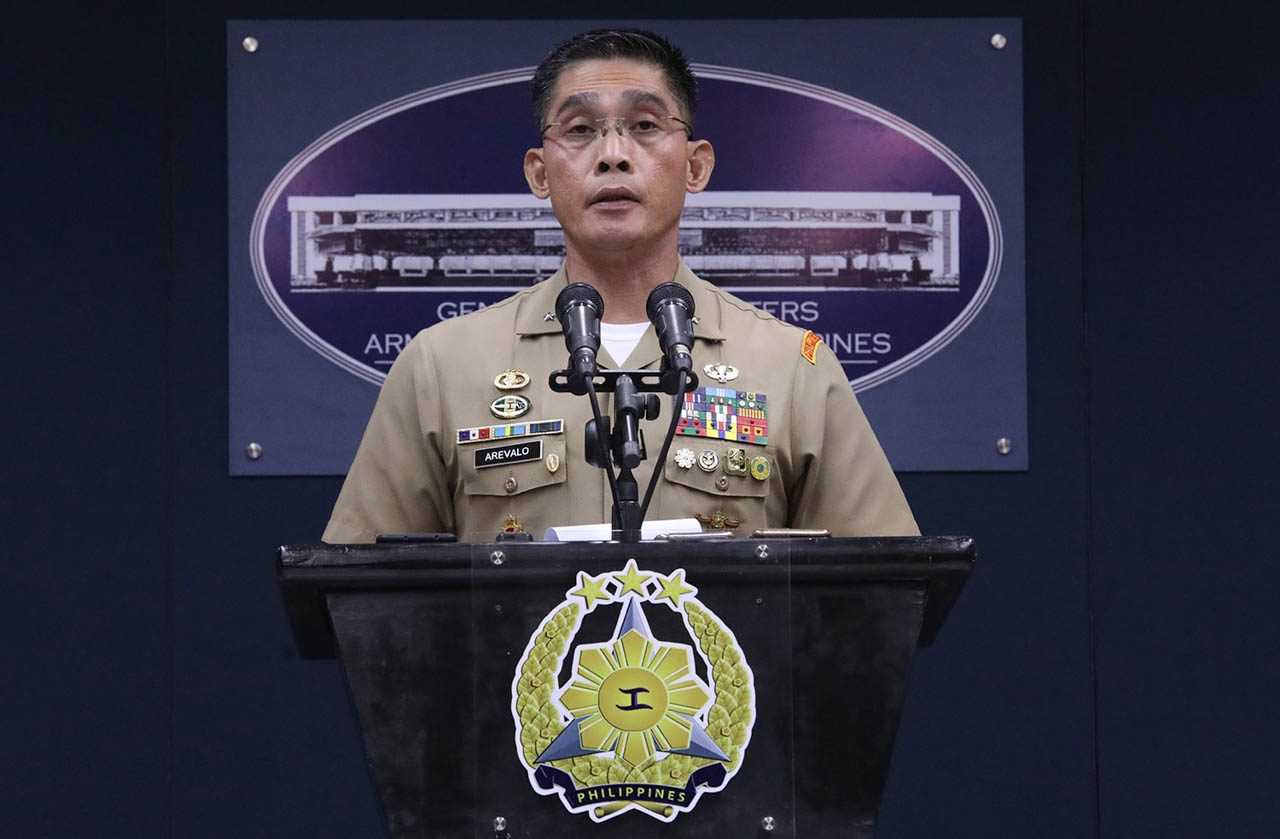SUMMARY
This is AI generated summarization, which may have errors. For context, always refer to the full article.

MANILA, Philippines – The Armed Forces of the Philippines (AFP) welcomed the passage of the anti-terrorism bill, which it earlier said would “immensely contribute to the success” of its counterterrorism campaigns.
“We are pleased to hear that the bill was passed by Congress. We are aware that the various issues raised on the proposed piece of legislation were all considered in the thorough and deliberate discussions in Congress,” AFP spokesperson Brigadier General Edgard Arevalo said in a statement on Thursday, June 4.
The Anti-Terrorism Act of 2020 was passed in the lower chamber in record time.
Two House committees adopted the Senate version on May 29 by a vote of 34-2, with only Representatives Carlos Zarate and Kit Belmonte dissenting. Four days later, on June 2, the House approved the bill on 2nd reading and rejected all attempts to introduce amendments to it. The following day, June 3, the bill passed on 3rd and final reading.
Arevalo said the military would “reserve further comment” until President Rodrigo Duterte signs the bill into law, and its implementing rules and regulations are drafted.
“But from what has been reported to me so far, nothing in the enrolled bill to be sent to the President for his consideration adds any new power to the Armed Forces of the Philippines” Arevalo added.
When Duterte certified the bill as urgent on Monday, June 1, Arevalo thanked him for what would be the measure’s “immense contribution to the success of the AFP’s counterterrorism campaigns.”
“The new proposed legislation gives more teeth to the existing law and eliminates some provisions that tend to curtail rather than aid security forces to defeat terrorism, chief of which is the imposition of a P500,000 fine each day that a suspect is detained but later exonerated from the charges of terrorism,” Arevalo said on Tuesday, June 2.
The military top brass and security officials led by Defense Secretary Delfin Lorenzana have been pushing for the amended anti-terror bill since it was first filed in Congress in 2018 by Senator Panfilo Lacson.
‘More teeth’
The Anti-Terrorism Act of 2020 replaces the Human Security Act of 2007, which the military and other security officials dismissed as weak and cumbersome in addressing terrorism.
Unlike the old law, the new measure:
- broadens the definition of terrorism to include the intent behind actions or planned actions that cause harm to people or damage to public infrastrucure;
- penalizes inciting to action that may be interpreted as terroristic;
- penalizes recruitment to groups branded as terroristic;
- gives the Anti-Terrorism Council authority to brand groups or individuals as terrorists;
- extends the period of surveillance of terror suspects from a maximum of 60 days to a maximum of 90 days;
- extends warrantless arrest of suspected terrorists from 3 days to 14 days, extendable by another 10 days;
- removes the requirement that a warrantless arrest of a terror suspect must be the result of surveillance and an examination of the suspect’s bank transactions;
- removes the payment of damages of P500,000 per day of detention and seizure of assets of terror suspects who end up acquitted in court.
It was the Senate that first passed its version of the bill in February.
Both chambers will just need to ratify the bill separately before submitting it to be signed by the President.
This, as Duterte pushes to stamp out the decades-old communist rebellion by the end of his term in June 2022.
The government considers the New People’s Army (NPA), its parent Communist Party of the Philippines (CPP), and their political arm National Democratic Front (NDF) a terrorist organization.
In their official statements, military units often refer to these groups as “communist-terrorist groups,” or “communist NPA terrorists.”
Causing concern among progressive and activist groups is the government’s assertion that many of them are legal front organizations of the CPP-NPA-NDF.
Critics of the measure say that with the new anti-terror bill, the government may tag and arrest activists and dissenters as terrorists.
Because the measure judges the intent behind actions or planned actions, criticism of the government may be construed as inciting to terrorism and punished as a crime, they said.
Military and defense officials however said that the measure itself contains safeguards against abuse, including 10 years’ imprisonment of law enforcement or military agents who violate suspects’ rights.
Besides communist rebels, members of armed extremist groups such as the Abu Sayyaf and the Bangsamoro Islamic Freedom Fighters are also targets of the anti-terrorism bill. – Rappler.com
Add a comment
How does this make you feel?
There are no comments yet. Add your comment to start the conversation.